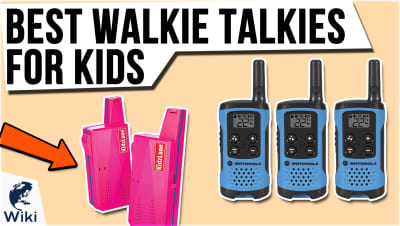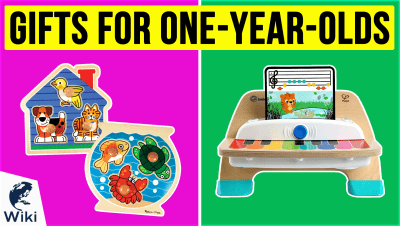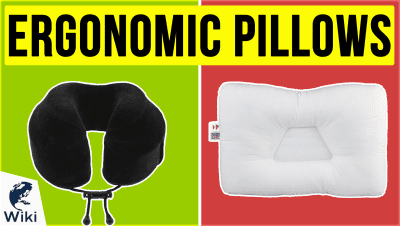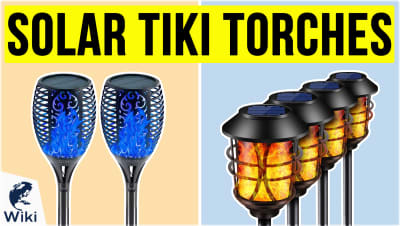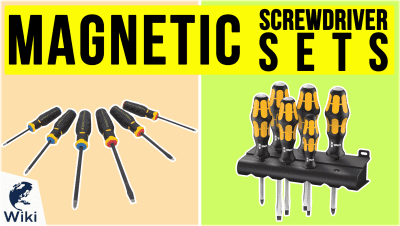6 Organizations That Support People With Autism
Living with Autism Spectrum Disorder, or raising a child with ASD, can be difficult for a number of reasons, from financial issues to not knowing how to communicate effectively. That's why organizations like the ones listed here work to provide people with the support and education they need, from inclusive activities to eye-opening research. This video was made with Ezvid Wikimaker.
Groups Helping People With ASD
| Name | Mission |
|---|---|
| AutismUp | Support individuals with Autism Spectrum Disorder, and their families, by expanding and enhancing opportunities to improve quality of life |
| Anna Kennedy Online | Promote the inclusion and equality of children and adults with autism throughout society |
| Children's Autism Services of Edmonton | Provide services, support, and strategies for children with autism in Edmonton |
| Center for Autism Research | Understand the causes of ASD in order to develop effective treatments through research; serve the needs of individuals with ASD and their family members through education and guidance throughout the lifespan; and train the next generation of master clinicians and scientists in state-of-the-science best practices for autism screening, diagnosis, and treatment |
| Social Competence & Treatment Lab | Focus on understanding how kids, teens, and adults connect with one another and make friends, and help to develop new and better ways to help them to do so |
| HEAL Foundation | Inspire, educate, and fund services for those affected by autism in Northeast Florida |
Signs & Symptoms Of Autism Spectrum Disorder
According to the CDC, children or adults with ASD might:
- Not point at objects to show interest (for example, not point at an airplane flying over)
- Not look at objects when another person points at them
- Have trouble relating to others or not have an interest in other people at all
- Avoid eye contact and want to be alone
- Have trouble understanding other people’s feelings or talking about their own feelings
- Prefer not to be held or cuddled, or might cuddle only when they want to
- Appear to be unaware when people talk to them, but respond to other sounds
- Be very interested in people, but not know how to talk, play, or relate to them
- Repeat or echo words or phrases said to them, or repeat words or phrases in place of normal language
- Have trouble expressing their needs using typical words or motions
- Not play “pretend” games (for example, not pretend to “feed” a doll)
- Repeat actions over and over again
- Have trouble adapting when a routine changes
- Have unusual reactions to the way things smell, taste, look, feel, or sound
- Lose skills they once had (for example, stop saying words they were using)
Why Everything You Know About Autism Is Wrong
Do Vaccines Cause Autism?
Some people have had concerns that ASD might be linked to the vaccines children receive, but studies have shown that there is no link between receiving vaccines and developing ASD. A 2013 CDC study added to the research showing that vaccines do not cause ASD. The study looked at the number of antigens (substances in vaccines that cause the body’s immune system to produce disease-fighting antibodies) from vaccines during the first two years of life. The results showed that the total amount of antigen from vaccines received was the same between children with ASD and those that did not have ASD. One vaccine ingredient that has been studied specifically is thimerosal, a mercury-based preservative used to prevent contamination of multidose vials of vaccines. Research shows that thimerosal does not cause ASD. Between 1999 and 2001, thimerosal was removed or reduced to trace amounts in all childhood vaccines except for some flu vaccines. This was done as part of a broader national effort to reduce all types of mercury exposure in children before studies were conducted that determined that thimerosal was not harmful. It was done as a precaution.
What Is Autism Spectrum Disorder?
In Depth
A diagnosis of autism spectrum disorder, or ASD, can represent a daunting challenge for affected individuals, as well as for loved ones who must learn new techniques of communication and care. Fortunately, as awareness of this condition grows, more resources for education and support are emerging. In no particular order, we present six groups offering assistance for those impacted by autism.
Beginning our list at #1 is AutismUp, a support organization for those with ASD and their families in the Rochester, New York region. They aim to help people of all ages and ability levels, with skill-building activities including summer camps teaching social competence, and a career development program that helps individuals find vocational training with local businesses. The group operates out of the Golisano Autism Center.
AutismUp provides help with aspects of life that can be challenging for individuals on the spectrum, such as appropriate interaction with law enforcement, socializing with peers, or playing team sports. The group offers education for adults as well, such as training on how to prevent child sexual abuse, and resources for handling difficult discussions with children who have ASD. Supporters can help by donating in a variety of ways.
The group offers education for adults as well, such as training on how to prevent child sexual abuse, and resources for handling difficult discussions with children who have ASD.
Following up at #2 is Anna Kennedy Online, founded by a British mother frustrated by the lack of support for children with autism spectrum disorder. The group works to raise awareness, organizing campaigns against problems like in-school bullying, or the cultural stigma faced by affected families. AKO shares articles challenging the silence around the disorder, and arranges events like Autism Dance Day to raise money for support organizations.
Through media events such as Autism's Got Talent, showcasing performers on the spectrum from around the world, AKO seeks to challenge stereotypes and put a human face on ASD. Their volunteer Ambassadors promote understanding, and the group's Autism Hero Awards honor those who make outstanding contributions; the organization's founder also conducts interviews highlighting individuals working on ASD issues. Those wishing to help can make a donation or join a campaign.
Entry #3 is Children's Autism Services of Edmonton, a Canadian organization providing assistance for young people with developmental disorders. Their early education courses, summer camps, and daycare facilities offer opportunities for entertainment and skill-building overseen by trained professionals. They also provide respite care, either in-home or at one of the group's locations. Parents can receive diagnostic assessments for their children from the organization's experienced staff.
Parents can receive diagnostic assessments for their children from the organization's experienced staff.
Through the Enhancing Participation in Community program, Children's Autism Services of Edmonton provides controlled opportunities for kids with ASD, enabling participation in physical activities and social interaction. The organization also provides information for caregivers hoping to learn about assisting autistic children, including learning sessions and educational workshops, and their annual conference gathers interested individuals to share knowledge about this disorder. Readers can support this group as donors or volunteers.
Coming in at #4 is the Center for Autism Research, a joint effort between The Children's Hospital of Philadelphia and the University of Pennsylvania, aimed at improving clinical understanding of ASD. Conducting studies into topics like communication in young people and suicide prevention for individuals on the spectrum, their researchers investigate this condition's behavioral, neurological, and developmental characteristics, and assess the effectiveness of intervention strategies.
CAR hosts resources for autistic individuals or those interested in providing better care; their Autism Roadmap shares advice on topics like education and community support, and their Next Steps workshops train caregivers to handle various challenges. CAR also provides learning opportunities for clinicians considering a specialty in ASD, and can refer patients to the Autism Integrated Care Program. Supporters can help as donors, or, if eligible, as research participants.
CAR hosts resources for autistic individuals or those interested in providing better care; their Autism Roadmap shares advice on topics like education and community support, and their Next Steps workshops train caregivers to handle various challenges.
#5 in our overview is the Stony Brook Social Competence and Treatment Lab, also known as the Lerner Lab. Directed by Doctor Matthew D Lerner, this team studies the ways that young people interact, hoping to improve options for helping individuals with autism spectrum disorders and ADHD. They have received numerous grants and honors, including a 2019 Early Career Research Contributions Award from the Society for Research in Child Development.
The Lerner Lab's work ranges from investigations into the neurological correlates of social awareness, to surveys assessing the typical level of knowledge about ASD in primary healthcare providers. They also examine the efficacy of interventions intended to improve interpersonal skills in young people on the autism spectrum. Readers who would like to support the lab's efforts can make a donation of any amount.
We'll close with #6, Helping Enrich Autistic Lives, or HEAL. This foundation, located in Northeast Florida, provides grants and resources to local organizations serving people with autism. The group has supplied funding and goods to efforts including summer gardening day camps, special needs programs in schools, and exercise classes for individuals with motor difficulties. Their TEAM HEAL volunteer program recruits young professionals for fundraising and spreading awareness.
Their TEAM HEAL volunteer program recruits young professionals for fundraising and spreading awareness.
In addition to funding, HEAL supplies iPads to educational programs, recognizing their ability to aid learning in children with ASD; they also provide adaptive cycles to offer affected individuals mobility and enjoyment. Other programs include an annual surf camp, inclusive bowling nights, and events for socializing and fundraising such as the Autism Walk at the Jacksonville Zoo and Gardens. Anyone wishing to help can make a donation or a legacy gift.


